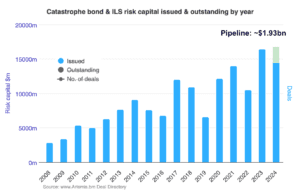The Greenest Car In America Isn’t An EV

Good morning! It’s Wednesday, March 13, 2024, and this is The Morning Shift, your daily roundup of the top automotive headlines from around the world, in one place. Here are the important stories you need to know.
The 2023 Dodge Challenger Swinger Edition Was The Most Fun Car Of The Year
1st Gear: Plug-In Hybrid Tops America’s Green List
Electric vehicles are here to save us, aren’t they? After all, they kick out zero emissions at the tailpipe and can be powered by electricity that’s generated by wind or water, right? Wrong; it turns out an EV isn’t the greenest car you can buy in America right now, it’s a plug-in hybrid instead.
That’s according to a new report from the American Council for an Energy-Efficient Economy, which was brought to our attention by the folks at Automotive News. In the report, four out of the top five green cars you can buy right now are electric, but number one is, in fact, the Toyota Prius plug-in. As per Automotive News:
Despite the attention on dozens of new electric models, the Toyota Prius Prime SE plug-in hybrid is the greenest model of 2024, according to the American Council for an Energy-Efficient Economy’s annual GreenerCars ratings of the most environmentally friendly cars.
Still, of the six best-scoring vehicles this year, four are battery-electric vehicles and two are plug-in hybrids. Rounding out the top six are the Lexus RZ 300e EV, Mini Cooper SE EV, Nissan Leaf EV, Toyota bZ4X EV and Toyota RAV4 Prime PHEV.
The American Council for an Energy-Efficient Economy evaluated each 2024 model based on its cost to human health from air pollution associated with vehicle manufacturing and disposal, the production and distribution of fuel or electricity, and vehicle tailpipe emissions. The group also accounted for air pollution associated with EV battery manufacturing.
Across the top ten greenest cars in America, four are either hybrid or plug-in hybrid models. The remaining six are all EVs, including the Kia EV6 and the Hyundai Kona Electric.
The high ranking of hybrid and plug-in hybrid models was thanks, in part, to their relatively low weight compared to their battery-powered counterparts. According to Automotive News, the higher weight of EV battery packs makes them more environmentally intense to produce and transport around.
Additionally, there’s a mounting pile of evidence that heavier vehicles can pollute the Earth in other ways by kicking up brake dust and rubber from tires that wear away on the road.
2nd Gear: Toyota Agrees Massive Pay Raises
After the United Auto Workers union won massive pay raises for its members at U.S. automakers like Ford, Stellantis and General Motors, Toyota has now stepped up to the plate and offered employees in Japan the biggest wage hikes in more than 20 years.
According to a new report from Reuters, the Japanese automaker has offered employees at its sites across Japan monthly pay rises of as much as 28,440 yen, which is a little over $190 at today’s exchange rate. As Reuters reports:
Toyota, Panasonic, Nippon Steel and Nissan were among some of Japan Inc’s biggest names that agreed to fully meet union demands for pay hikes at annual wage negotiations that wrap on Wednesday.
The talks, long a defining feature of the usually collaborative relationship between Japanese management and labor, are being closely watched this year as the pay increases are expected to help clear the way for the central bank to end its years-long policy of negative interest rates as early as next week.
Unions across Japan were pushing for raises of up to 5.85 percent for workers at companies such as Toyota. After negotiating with bosses for weeks, the two parties are predicted to agree on across the board raises of around “4.2 percent to 4.3 percent based on the quite strong responses so far,” reports Reuters.
The wage hikes at these companies come as Japan’s prime minister, Fumio Kishida, undertakes a push to encourage companies across the country to offer workers more in order to kick start spending across Japan.
3rd Gear: Mercedes Isn’t Scared of Chinese EVs
Automakers and lawmakers across America have spent the past few weeks bemoaning Chinese-made EVs, which they think threaten our auto industry and our safety. Across the pond in Europe, that’s not quite the case, and Mercedes is arguing we should be welcoming cheaper Chinese EVs with open arms.
Mercedes-Benz boss Ola Källenius argued that an open market for Chinese EVs will encourage European automakers to make better cars, reports Business Insider. Instead of raising tariffs and restrictions on the import of Chinese EVs into Europe, Källenius argued that duties should be reduced on Chinese automakers such as BYD and Geely. Business Insider reports:
Chinese cars face 10% tariffs in Europe, which is lower than the 15% levy imposed on European cars sold in China.
“Don’t raise tariffs,” he told the FT. “I’m a contrarian, I think go the other way around: take the tariffs that we have and reduce them … that is the market economy. Let competition play out.”
“It has been opening up markets that has led to wealth growth, especially in the economic wonder of China, that has lifted hundreds of millions of people out of poverty,” Källenius added. “If we believe protectionism is the thing that gives us long-term success, I believe history tells us that is not the case.”
This, however, isn’t the stance taken by many lawmakers across Europe. Instead, the bloc is currently undertaking a probe into China’s automakers operating across Europe and has threatened to increase import tariffs on some models to keep pricing competitive compared with cars assembled in Europe.
4th Gear: Porsche Profits Drop As New Models Roll Out
And on the subject of European automakers not making as much money as they’d like, Porsche has made an attempt to temper expectations ahead of its latest financial results. The German car company has warned that this year is a “transition” period for the brand, so it may not make as much money as people hoped.
According to a report from the Financial Times, Porsche warned that profits may be tighter in 2024 as a result of the costly roll out of new models, such as a hybrid version of its iconic 911. The FT reports:
The German group on Tuesday said it expected an operating margin of between 15 and 17 per cent for this year, down from 18 per cent in 2022 and 2023. Porsche was still targeting an overall profit margin of 20 per cent over the long term, said chief financial officer Lutz Meschke.
The company spent €5bn in 2023 on research, development, marketing and events — its highest ever — as it invested heavily in converting more of its range to electric models.
Analysts at Citigroup called Porsche’s guidance on margins “disappointing” and said that while the carmaker needed to refresh its line-up of models, generating a return on its investment was likely to “take time”. But analysts at Deutsche Bank hailed the upcoming launch of Porsche’s first all-electric sport utility vehicle, which they expected would sell up to 100,000 units next year and make up to a fifth of group earnings by 2026.
Despite the warning, share prices at Porsche rose three percent in afternoon trading yesterday, but that wasn’t enough to offset losses over the past year. As a result, the share price at Porsche remains 13 percent lower than this time last year.
Now, the automaker will be hoping to fill its order books with new models like the updated Taycan and its raft of other new models that are reportedly coming soon.
Reverse: High School Science Students Have Been Chuckling Ever Since
On The Radio: Taylor Swift – ‘Seven’
Taylor Swift – seven (Official Lyric Video)




